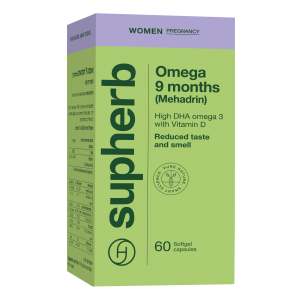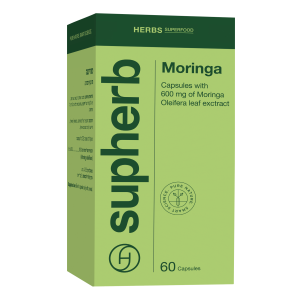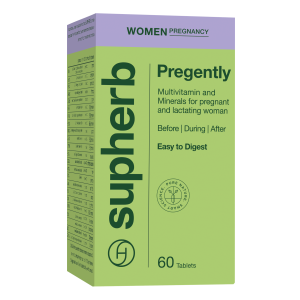- Home
- Pregnancy and postpartum
- Prenatal Supplements
Prenatal Supplements
- There are recommended vitamins and minerals during pregnancy which you should keep taking them even when you breastfeed.
- According to global health organizations, DAH-type Omega 3 is important during pregnancy and breastfeeding.
- Many women take herbs such as fenugreek and moringa while breastfeeding, in order to increase milk production, just like they do in various traditional cultures.

In the few weeks after giving birth, the body needs to recharge on vitamins and minerals that were used during pregnancy. The body’s demand for certain minerals and vitamins increases during pregnancy and breastfeeding in order to provide the developing fetus with everything it needs, provide all the required components to the breastfeeding baby and keep the mother healthy. Do only breastfeeding women need to take supplements? Which supplements are best after giving birth? Which supplement shouldn’t you give up on and is there a natural way to encourage milk production? You can find the answer to all these question in this article.
Mineral-multivitamin for pregnant women, also after giving birth!
Prenatal multivitamin includes all the recommended ingredients for that time, fetus development and mother’s health. Not everyone’s aware it is recommended to keep consuming the four recommended components during pregnancy even after giving birth. The recommendation for some of the ingredients is also valid for women who breastfeed as well as ones who don’t. These are the 4 vitamins and minerals recommended by the Ministry of Health:
Iodine – important for the proper development of the brain and the nervous system as well as a proper functioning of the thyroid gland. It’s recommended to take iodine at a dosage of 150-250mcg per day, at least one month before getting pregnant, during the pregnancy and throughout the breastfeeding period. Iodine deficiency leads to inadequate cognitive development.
Iron – the volume of the blood increases during pregnancy and all pregnant women are given iron, as well as women who gave birth, in addition to the recommendation for eating iron enriched foods. Iron is a component of the hemoglobin protein in charge of getting oxygen to the entire body. Iron deficiency directly damages the oxygen supply, making it vital for both the mother and baby. Iron supplements are recommended at a dosage of 30mg, starting at the end of the first trimester and up to six weeks after giving birth. Adding vitamin C can help absorb the iron.
Vitamin D – it’s recommended to take vitamin D throughout the pregnancy and breastfeeding periods at a dosage of 200-400 IU a day. The need for vitamin D increases during pregnancy and is important for the development of the bones and immune system.
Folic acid – it’s recommended that fertile women take folic acid daily, at a dosage of 400mcg, throughout. The most crucial time is three months before getting pregnant and the three first months of the pregnancy itself. Ideally, you should stick to the recommendation and keep taking folic acid regularly as long as you’re fertile, meaning also after giving birth. The natural folic acid in food isn’t enough for the body’s needs during pregnancy and should be taken as a supplement. You should choose a supplement that contains the folic acid’s natural and active form, methyl folate, which is better absorbed.
Bottom line – instead of taking each component individually, keep taking the prenatal mineral-multivitamin even after giving birth! It contains all four of these ingredients in their recommended dosages.
Postnatal Omega 3
According to recommendations by global health organizations, DHA-type Omega 3 is best consumed at least 200mg a day during pregnancy and breastfeeding. Omega 3 is also important for postnatal women who don’t breastfeed. You can get it through a diet of 2 fish dishes a week: salmon, cod, mackerel, sardines or tuna, or by taking supplements. Omega 3 is important for proper development of the baby’s brain as well as the mother’s health. If you don’t regularly eat fish, you should take an Omega 3 supplement. You should choose an Omega 3 supplement that is meant for pregnant women even after giving birth, which contains an increased dosage of the DHA fatty acid and meets the strict standards of metal and contaminant control that might be found in fish.
Fenugreek during breastfeeding
Women are traditionally given various herbs after birth in order to strengthen them and help them produce more milk. Though there’s no scientific foundation for their specific effect, fenugreek is one of the most common herbs used for that purpose and breastfeeding women in the western world have also embraced it and take it during breastfeeding.
Fenugreek, also known as trigonella foenum-graecum, is common in the Yemenite, Persian, Cochin and Ethiopian cuisines and is one of the components of the Indian curry and the amba sauce. The herbal component, trigonelline, is what gives the fenugreek its distinct scent and flavor. Alongside its culinary uses, it’s also traditionally used in several cultures for various health issues like balancing sugar and fats in the blood. The fenugreek seeds are rich in minerals, vitamins, essential fatty acids and nutritional fibers. It’s also been traditionally used in Chinese medicine and given for deficiencies and weakness.
Postnatal moringa
The moringa tree comes from northern India and is being used in Indian medicine and other countries in the Far East. Moringa is considered a nutritional herb with impressive nutritional values and is even acknowledged as a “super food”. It was given the nickname “wonder tree” and various parts of the plant are used, especially the leaves. The moringa leaves were traditionally used to prevent nutritional deficiencies and improve health, especially among breastfeeding women. The leaves contain a multitude of vitamins and minerals, such as vitamins A, C, K and vitamins from the B group, as well as an impressive dosage of minerals like iron, calcium, potassium magnesium and zinc. There’s much research being done on the plant in recent years, and although the scientific foundation for its direct influence on milk production is yet to be found, breastfeeding women tend to use it to enhance milk production and for postnatal nutritional enrichment.















